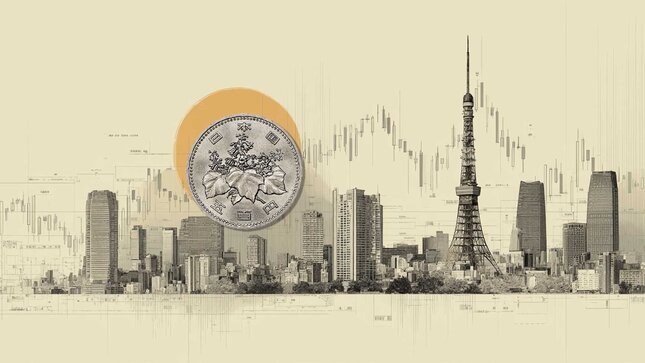In fact failure (losing trades) is intrinsic to trading. You cannot trade and never lose. It is impossible to be in the controlling seat and there will always be unpredictability. Learning to read charts and how to trade technically is relatively straight-forward. Learning the psychology to deal with the inevitable losses is what separates the winners from the losers. Perceived failure undermines confidence and a failure of confidence undermines motivation. This can lead down two different paths: one where the desire to trade and succeed as a trader dwindles; the other to renewed determination not to give in.
“Our greatest glory is not in never falling, but in rising every time we fall”. This quote by Confucius is wholly relevant to the mindset a trader must develop if they are to succeed; it cannot be overemphasized.
The issue is primarily to do with how we buy into trading in the first place. More often than not we have read or been told that trading is the easy and fast way to making considerable money. In the mind’s eye of the novice, wealth and trading are synonymous. This of course is naïve because the reality is that the vast majority of novice traders fail. Our expectations are set too high. Inevitably trading is not some stand-alone activity that sits outside the normal laws that apply to success. It takes hard work and perseverance. The rewards are certainly there, but they don’t hang like heavy fruits waiting to be plucked by any passer by.
It is important to grasp the reality of learning to trade and not think of it as a ‘get rich quick’ scheme. That will only lead to disappointment. Knowing that losing trades are a part of the process of being a trader, a natural expense, which we accept and learn from is probably the most important early step to take and one that starts to put us into the mindset of the professional – emotion free trading. This allows us to follow our trading plan and apply our trading strategies with consistency and discipline, and rules out emotional reaction to loss. If a trade is entered only when our rules are met and then managed with discipline we have nothing to fear, even if it loses. There is a lot to be gained from reviewing losing trades, a process that all professionals go through.
It is perfectly possible for any of us to learn the skills required to trade successfully. Our main obstacles are ourselves, i.e., how much do we really want it? How much effort are we really prepared to put in?
To understand more we need to be around the professionals, seeing how they trade the market and learning first hand the importance of price action strategies and self-discipline. By doing so we put ourselves on the road to fearing less and understanding more, ultimately the road to success.
Editors’ Picks

EUR/USD: US Dollar to remain pressured until uncertainty fog dissipates Premium
The EUR/USD pair lost additional ground in the first week of February, settling at around 1.1820. The reversal lost momentum after the pair peaked at 1.2082 in January, its highest since mid-2021.

Gold: Volatility persists in commodity space Premium
After losing more than 8% to end the previous week, Gold (XAU/USD) remained under heavy selling pressure on Monday and dropped toward $4,400. Although XAU/USD staged a decisive rebound afterward, it failed to stabilize above $5,000.

GBP/USD: Pound Sterling tests key support ahead of a big week Premium
The Pound Sterling (GBP) changed course against the US Dollar (USD), with GBP/USD giving up nearly 200 pips in a dramatic correction.

Bitcoin: The worst may be behind us
Bitcoin (BTC) price recovers slightly, trading at $65,000 at the time of writing on Friday, after reaching a low of $60,000 during the early Asian trading session. The Crypto King remained under pressure so far this week, posting three consecutive weeks of losses exceeding 30%.

Three scenarios for Japanese Yen ahead of snap election Premium
The latest polls point to a dominant win for the ruling bloc at the upcoming Japanese snap election. The larger Sanae Takaichi’s mandate, the more investors fear faster implementation of tax cuts and spending plans.
RECOMMENDED LESSONS
Making money in forex is easy if you know how the bankers trade!
I’m often mystified in my educational forex articles why so many traders struggle to make consistent money out of forex trading. The answer has more to do with what they don’t know than what they do know. After working in investment banks for 20 years many of which were as a Chief trader its second knowledge how to extract cash out of the market.
5 Forex News Events You Need To Know
In the fast moving world of currency markets where huge moves can seemingly come from nowhere, it is extremely important for new traders to learn about the various economic indicators and forex news events and releases that shape the markets. Indeed, quickly getting a handle on which data to look out for, what it means, and how to trade it can see new traders quickly become far more profitable and sets up the road to long term success.
Top 10 Chart Patterns Every Trader Should Know
Chart patterns are one of the most effective trading tools for a trader. They are pure price-action, and form on the basis of underlying buying and selling pressure. Chart patterns have a proven track-record, and traders use them to identify continuation or reversal signals, to open positions and identify price targets.
7 Ways to Avoid Forex Scams
The forex industry is recently seeing more and more scams. Here are 7 ways to avoid losing your money in such scams: Forex scams are becoming frequent. Michael Greenberg reports on luxurious expenses, including a submarine bought from the money taken from forex traders. Here’s another report of a forex fraud. So, how can we avoid falling in such forex scams?
What Are the 10 Fatal Mistakes Traders Make
Trading is exciting. Trading is hard. Trading is extremely hard. Some say that it takes more than 10,000 hours to master. Others believe that trading is the way to quick riches. They might be both wrong. What is important to know that no matter how experienced you are, mistakes will be part of the trading process.
The challenge: Timing the market and trader psychology
Successful trading often comes down to timing – entering and exiting trades at the right moments. Yet timing the market is notoriously difficult, largely because human psychology can derail even the best plans. Two powerful emotions in particular – fear and greed – tend to drive trading decisions off course.


